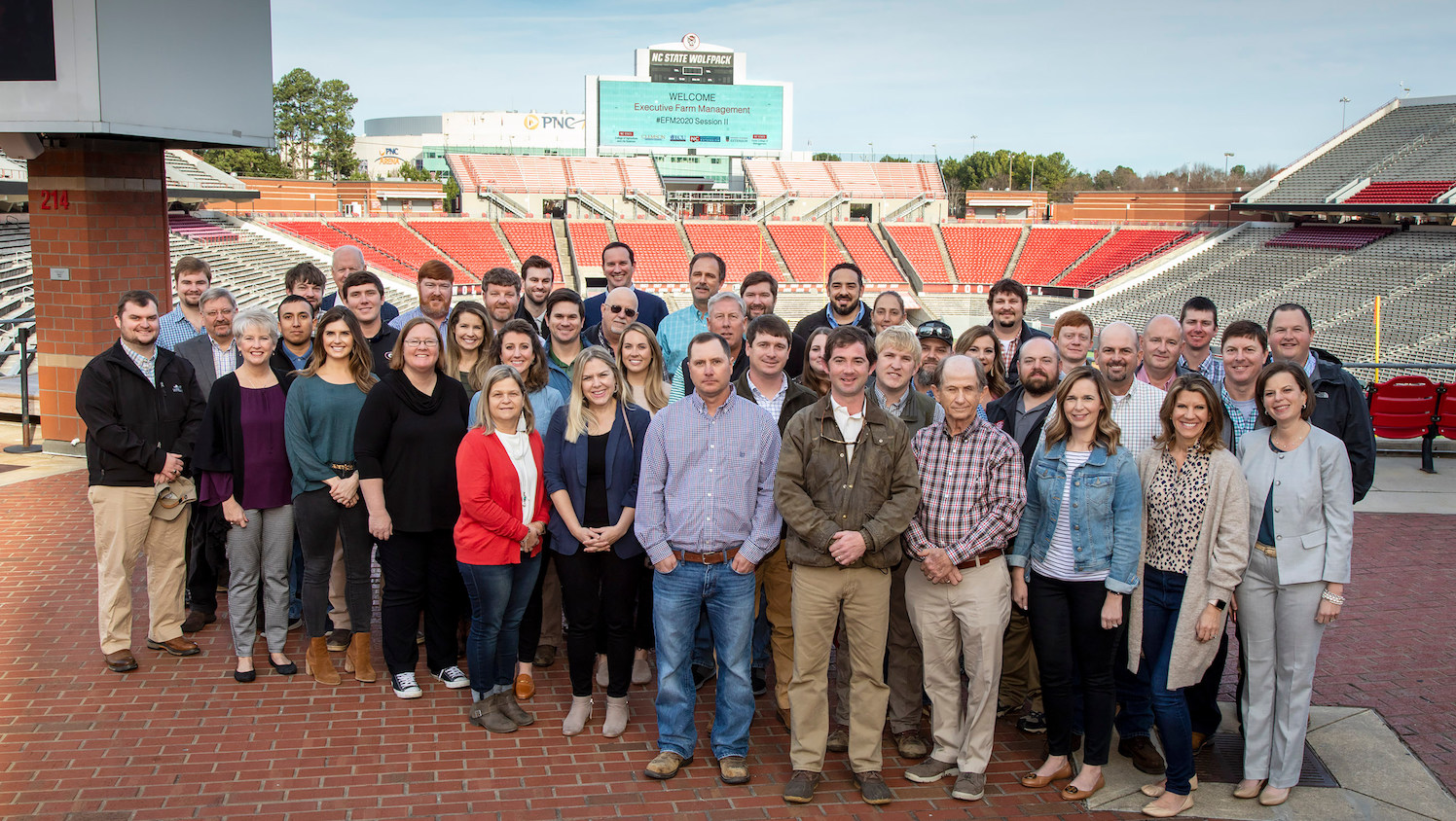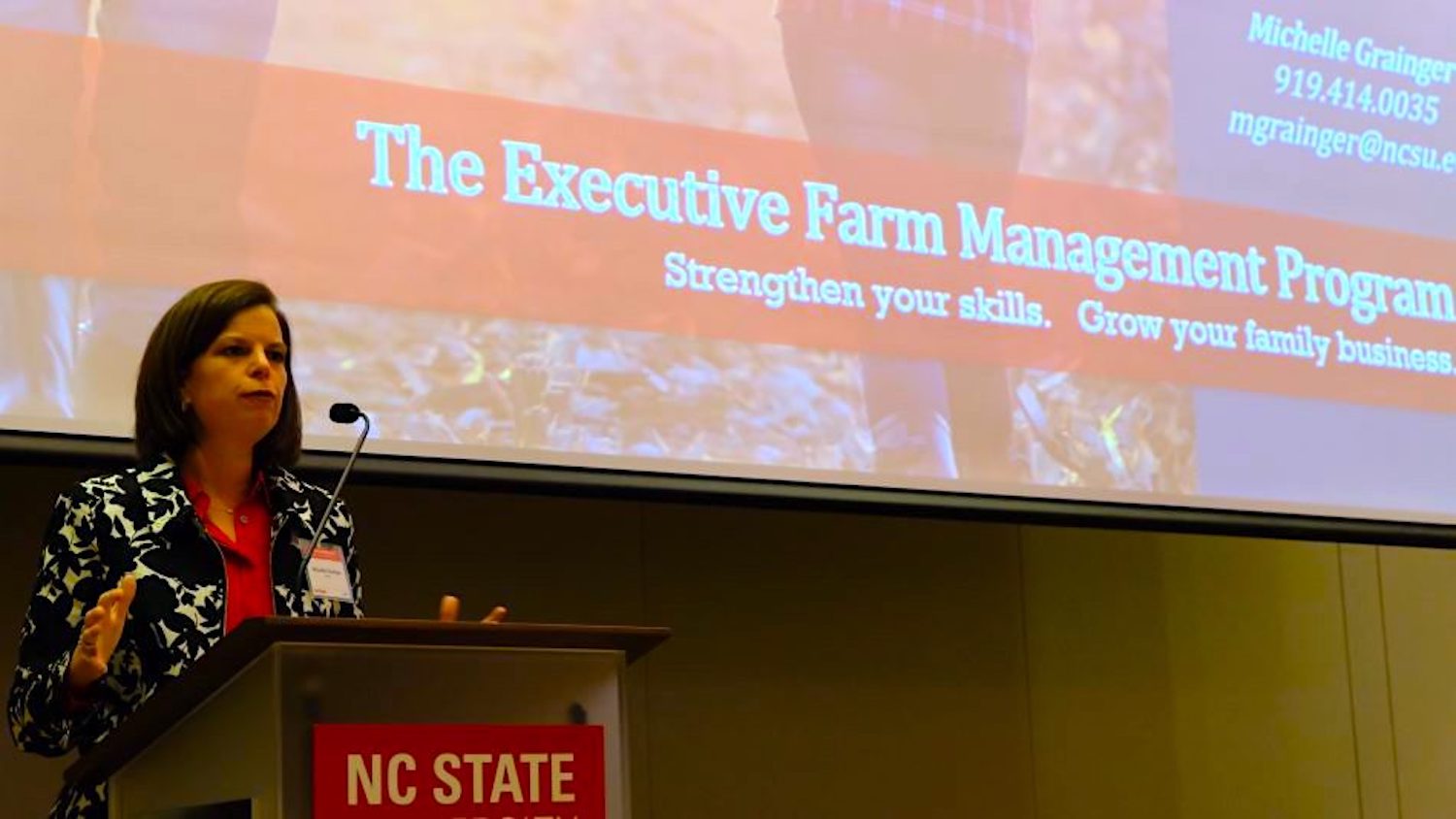41 Participants Complete the Executive Farm Management Program

The Executive Farm Management’s (EFM) 2020 program has seen 41 individuals across North Carolina, South Carolina, Georgia and Virginia become exposed to new tools in areas of strategy, financial management, human resource management and value creation over the six-week program. The participants represent 30 family-owned farming operations, cooperative extension agents of two universities and agribusinesses across the southeast.
It was through a lot of these meetings, lectures, or guest speakers that got me brainstorming new ideas to implement on my produce operation.
2020 marks the third year of the EFM program offered by NC State’s Cooperative Extension and the College of Agriculture and Life Sciences, designed to provide the most progressive business management tools and competencies to family-owned farming operations. NC State Poole College of Management and East Carolina University’s College of Business, along with Clemson University’s Cooperative Extension and University of Georgia’s Cooperative Extension round out this unique and first-of-a-kind multi-institutional executive education collaborative.
“The Executive Farm Management program was key in getting me to think outside the box and how to diversify my produce business,” said Collin Blalock, owner of Collin’s Produce and a 2017 alumnus of the EFM program. “It was through a lot of these meetings, lectures, or guest speakers that got me brainstorming new ideas to implement on my produce operation.”
The program curriculum is comprehensive in design and is delivered in a total of three sessions, broken out across three locations over 12 days starting in Savannah, Georgia, with its longest session delivered in Raleigh, North Carolina and finishes in Charleston, South Carolina. The locations were selected based on partnerships and agricultural conferences coinciding either before or during the program delivery dates.
Poole College’s Michelle Grainger, director of the Center for Innovation Management Studies (CIMS), serves as the managing director of the EFM program and has been an advocate of the importance of agriculture in both North Carolina’s economy as well as the country’s. Grainger recently spoke at FoodCon 2020 and the TEDxCaryWomen in December.

“For the past two program offerings, I have had the opportunity to take the lead on the recruitment of participants and the overall marketing of the program, allowing me to travel across the southeast meeting with prospective participants and reconnecting with alumni,” said Grainger. “Identifying outside featured expert speakers has also been a passion of mine as we have prepared for each program offering.”
Throughout the program, participants are introduced to over 30 business management tools, providing them with the necessary skills needed to determine which tools would best fit the needs of their operations. The ability to choose between tools is powerful and empowers the operators to make changes to the business side of their operations that they may not have considered prior.
“Because we teach in such a hands-on-manner, which is both highly facilitated and interactive, participants leave with the confidence and competence to use each of these tools effectively as well as determining when would be a good time to incorporate them,” said Grainger.
With over 92 alumni there is tremendous opportunity for growth of the EFM offerings, including spin-off offerings with concentrated content delivered in shorter time periods or online delivery formats.
“We have also begun exploring the possibilities of offering custom programs, to organizations at a national level, where the content would be further customized for their specific commodity/interest,” said Grainger. “Bottom line, the future is very optimistic and exciting for EFM.”
To learn more about the Executive Farm Management Program, visit their website, Facebook, Instagram and Twitter pages.


